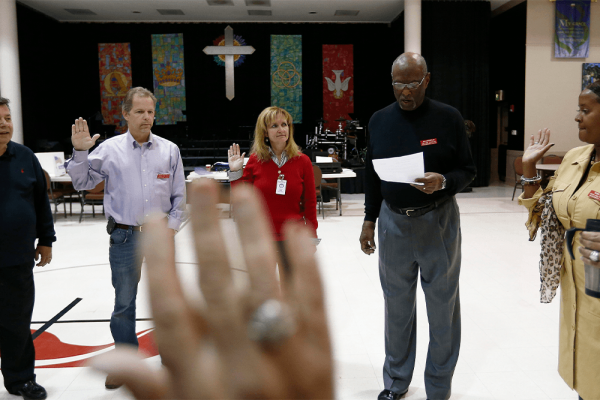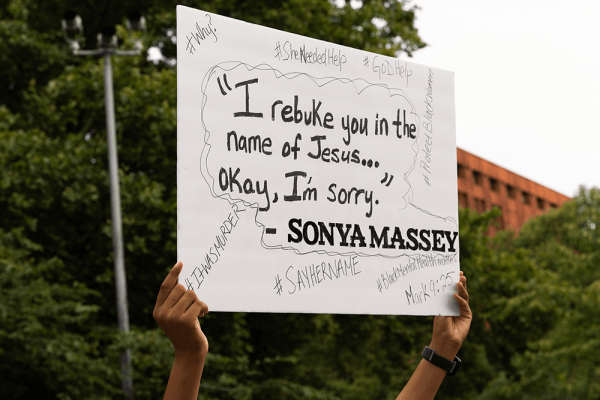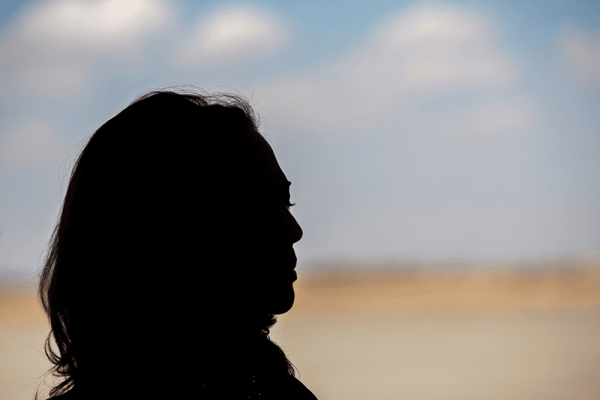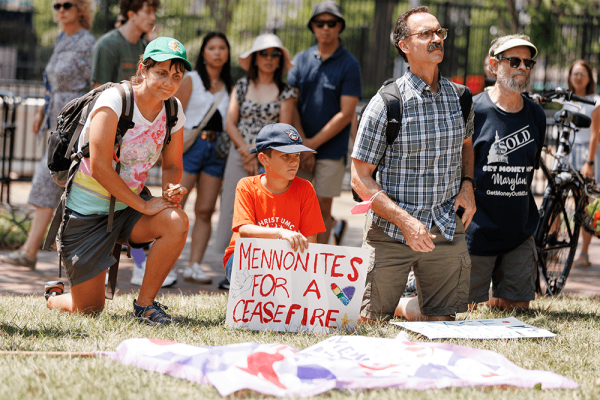In the late spring of 1995, Rebekah Mitchell went into the hospital at 27 weeks pregnant with her second child. Mitchell had a kidney disease that was affecting her own health and the health of the baby. She made it to seven months, and then the baby, whom she and her husband had already named Jonathan, became entangled in the kinked umbilical cord, and died suddenly. Stunned and recovering from the cesarean section required to deliver Jonathan, she kept his body with her in the hospital room for three days.
Ten years ago, Michael Brown, an unarmed Black teenager, was killed by a police officer in Ferguson, Mo. Young people gathered at the local police station refusing to accept this as just another “unfortunate incident.” They demanded answers and accountability; their determined stance sparked a movement for racial justice that this nation had not experienced in decades.
Even in the depths of high-control religion, there were moments of being fed and cared for that I did not know I missed until I did.
Lawmakers in 29 states have proposed at least 91 bills promoting religion in public schools this year, according to Americans United for Separation of Church and State, an advocacy group backing a lawsuit challenging Louisiana's law. Rachel Laser, its chief executive, said the group tracked 49 similar bills in 2023.
It goes without saying that we’ve got plenty of dread to spare this year. Since President Joe Biden won the presidency in 2020, former President Donald Trump and his allies have falsely claimed that the election was rigged. Millions of Americans agree. Meanwhile, many other Americans fear how far Trump could take his authoritarian impulses in a second term. As our political culture becomes more tightly wound, the nuts and bolts of our democracy seem to be coming loose. For the average citizen, it can be hard to verify every claim we see circulated in partisan media or online. Despite election law being clear that a party can choose its nominee at convention, for example, many Republicans claimed it was “too late” for Biden to step down from his reelection campaign.
How does a Black woman call for help and get killed by the people who came to support her?
When President Joe Biden announced he would not seek reelection and Harris became the presumptive nominee, leaders in faith and immigration said that Harris brings a new outlook to the future of their work.
First unveiled in April 2023, and endorsed by more than 100 conservative organizations, Project 2025 is a 922-page document that serves as a to-do list for the next conservative president to accomplish. Activists, journalists, and many religious leaders have been warning the public for months about what they see as some of Project 2025’s more extreme policy proposals and the ways in which the blueprint would push our nation toward autocracy and Christian nationalism.
Starting on Thursday, July 18, between 35 and 125 Mennonites and interfaith allies from the U.S. and Canada made steady progress on their 11-day, 141-mile “All God’s Children March for a Ceasefire” trek from Harrisonburg, Va., to Washington, D.C. Upon arrival in Washington on Sunday, July 28, the marchers urged Congress and President Joe Biden’s administration to support an immediate, permanent ceasefire, the release of all hostages and political prisoners, an end to military aid to Israel, and a political solution that ends the occupation of Palestine, ensuring peace for Palestinians and Israelis. And on Tuesday, July 30, 46 of the people were arrested by Capitol Police during a protest.
In the queer, young adult novel She Drives Me Crazy, author Kelly Quindlen employs a couple of my favorite romance tropes: A fake-dating scenario and an enemies-to-lovers story arc. But when I first read the novel a few years back, I was also delighted by all the plotlines and character traits I’d never encountered in a sapphic YA romance: The two main characters — high schoolers Scottie (star of the girls’ basketball team) and Irene (captain of the cheerleading squad) — are both Catholic, and, most significantly, their Catholicism is not in conflict with their sexuality. Both Scottie and Irene’s parents are affirming; their queerness is a nonissue for their families and their church.









